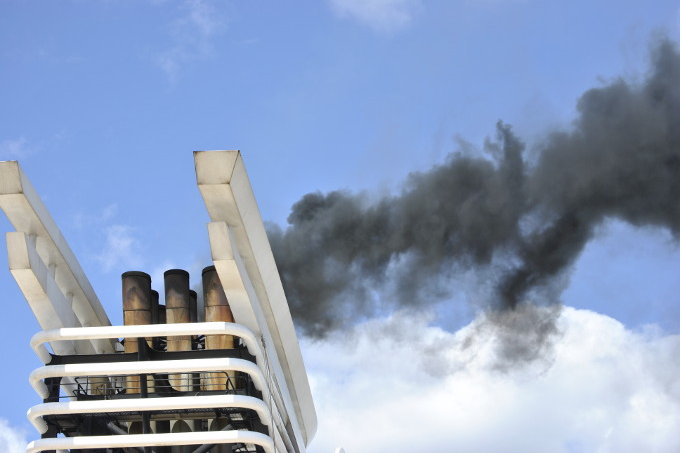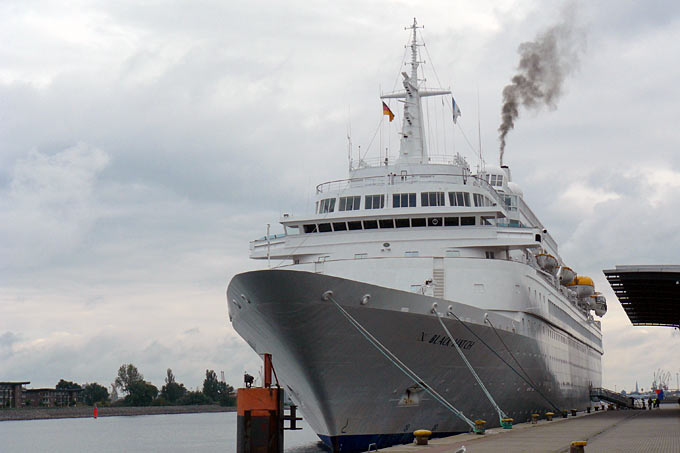International Mediterranean Shipping Conference
Reducing air pollution from ships in the Mediterranean Sea

Schiffssschlot - Foto: NABU/Schulte
Shipping emissions are a significant threat to human health, the environment and global climate. Compared to pollution sources on land little has been achieved when it comes to tackling air pollution and greenhouse gas emissions from vessel operation effectively. Despite the fact that the International Maritime Organisation (IMO) agreed on a global sulphur cap of 0.5 % for marine fuels in last October which will only come into effect by the year 2020 ships will still sail on heavy fuel oil (or newly developed low-sulphur HFO blends) and lack any exhaust gas aftertreatment systems like they are a common standard for all land-based sources since many years.
Therefore, areas with dense shipping routes such as the Mediterranean Sea are particularly affected by the shipping industry's exhaust gases including significant amounts of particulate matter, soot, nitrogen and sulphur oxides which contribute to local air quality problems in port cities, coastal areas but also beyond i.e. in the Hinterland. The European Union with its Sulphur Emission Control Areas (SECAs) in the Baltic Sea and North Sea already achieved significant air quality improvements after the 0.1 % sulphur standard was introduced in 2015. A NECA to tackle nitrogen oxides in the these waters likewise is also on the horizon. Ship operators, ports and terminal operators started (to consider) investments in green and alternative technologies and infrastructure or incentivise respective steps.
So one burning question arises: When will Mediterranean countries and other stakeholders in the region start to take action in order to protect their citizens, the environment and their cultural heritage from air pollution and to contribute to climate protection efforts?
We discussed this issue with key stakeholders such as national governments, EU bodies, industry stakeholders, leading scientists, ports and NGOs. Aspects which were covered are: The impact of shipping emissions in the Mediterranean region, technical and regulatory means to reduce air pollution from ships effectively, market competitiveness and distorsions, compliance: control and enforcement of upcoming regulations, voluntary and accompanying measures e.g. what can be done at ports' level? And of course: Who has to start and where?
Presentations
More Information
Sulphur oxide (SOx), nitrogene oxide (NOx) and (ultra) fine particle (PM) emissions from shipping are a significant threat to human health, the environment and the climate. A well established network of NGOs in Europe is working towards establishing a Mediterranean Emission Control Area (MedECA) for sulphur and nitrogen oxide emissions. more →

